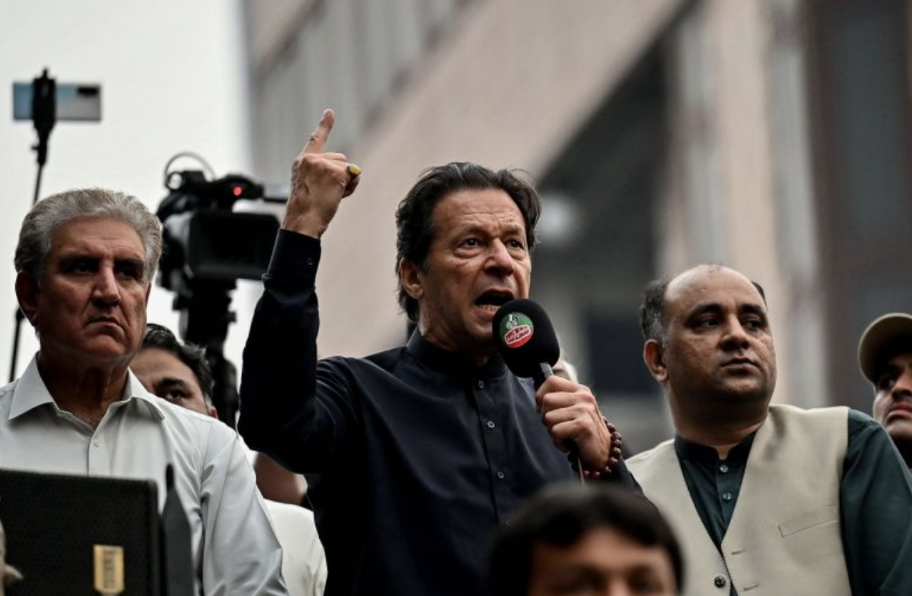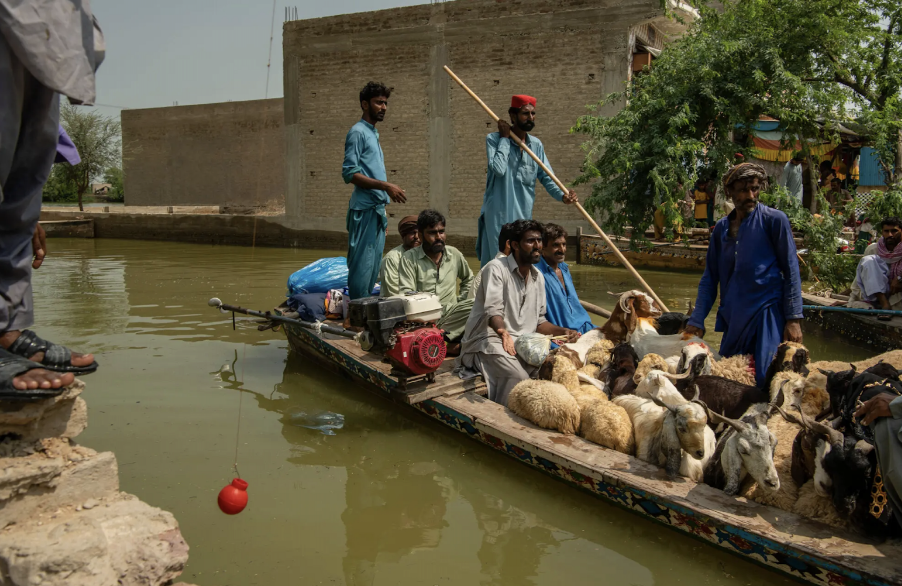Attempted Assassination On Former Pakistani Prime Minister Imran Khan
Former Pakistan Prime Minister Imran Khan blames establishment figures for plot to kill him
Outside the town of Gujranwala Punjab province on Thursday, a video of an alleged attack shows former Prime Minister Imran Khan waving from an open-topped truck, moments before shots rang out, with a bullet hitting Khan’s leg as his party members quickly ducked for cover. A man suspected of this attack was detained on Thursday, according to the police. The suspect was arrested with a 99mm pistol.
Pakistan Tehreek-e-Insaf (PTI) senior leader Asad Umar confirmed, “Yes, he has been shot, there are pellets lodged in his leg, his bone has been chipped, he has also been shot in his thigh.” Thereafter, Khan was immediately evacuated to a treatment center in Lahore.
Khan accused the current Pakistani Prime Minister Shabaz Sharif of perpetrating the attack, along with Interior Minister Rana Sanaullah and Major General Faisal, yet no conclusive evidence has been provided to determine whether these allegations are true.
As political and economic tensions continue to rise, such allegations have sparked controversy, as the media wing of the Pakistani military condemned Khan’s claims on Friday, accusing them of being baseless and irresponsible. The Pakistani military views Khan’s allegations as defamation of Pakistan’s political institution.
The Pakistani government has been asked to investigate the matter and begin legal action against those responsible for instigating such political turmoil. The identity of the gunman, who was arrested at the scene, remains unknown. No group has yet claimed responsibility for the shooting.
Boat operators have become a lifeline for residents who are trying to save the livestock and belongings that were not washed away by floodwaters. The New York Times
Such political turbulence has been exacerbated as discussions between the Pakistani government and the World Bank in late October illuminated the wide array of ills that have befallen the impoverished nation. World Bank representatives estimate that the floods that hit Pakistan during the monsoon season have caused over $40 billion of damages.
Pakistan was already in the midst of a serious political and financial crisis before the heavy monsoon rains hit, triggering unprecedented floods, and leaving a third of Pakistan's territory submerged as thousands of people attempted to move and evacuate to safer parts of the country.
The floods reportedly killed over 1,800 people and have affected 33 million Pakistani residents since they began in mid-June. According to the government, the water damages have washed away 2 million homes, and infrastructure that will cost the government over $30 billion in damages, a final report of damages is yet to be published with the assistance of international agencies such as the World Bank.
The United Nations has already declared that they will be revising Pakistan’s appeal for aid to $816 million from the initial $160 million, justifying that the degree of damages caused by the recent floods points to a more urgent need for long-term aid.
On Oct. 14., the World Bank and the Government of the United Kingdom and Northern Ireland hosted a discussion on how to respond to the impacts of the catastrophic floods in Pakistan. The floods demand international assistance and accelerated structural reforms to finance resilient reconstruction. The World Bank and International Monetary Fund joined in on the discussion in order to foreshadow Pakistan’s future financial projections.
Martin Raiser, Vice President of the World Bank for South Asia, believes that the initial damage assessments conducted on the floods in Pakistan highlight the fact that the scale of this disaster exceeds the damages of both the 2005 and 2010 Pakistani floods. These extensive damages further demonstrate the intensified impact that climate change is posing on the South Asian region. The current political and economic tensions in Pakistan are rising, illustrating the urgent need for international aid and assistance.


